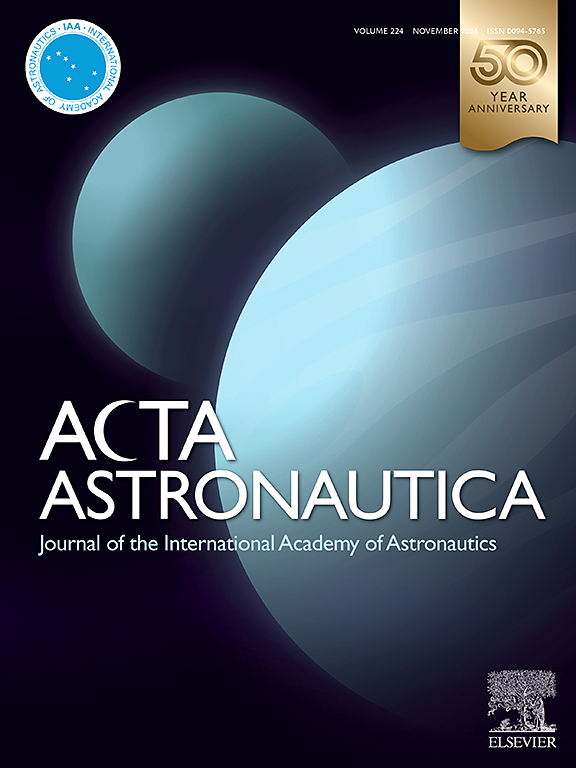Development of a micro-thrust measurement system and ground thrust measurement of the micro Hall thruster for Taiji mission
IF 3.1
2区 物理与天体物理
Q1 ENGINEERING, AEROSPACE
引用次数: 0
Abstract
The Taiji Laboratory for Gravitational Wave Universe has developed a micro-thrust measurement system specifically for ground thrust measurement of a micro Hall thruster. The thrust measurement system's core component is the thrust stand, which is designed based on a hanging pendulum topology and has undergone four generations of iterative optimization. This thrust measurement system is capable of measuring the thrust in the range of 0–100 μN with a resolution better than 0.1 μN. This study presents ground thrust measurements for a ground-optimized version of the micro Hall thruster on board the Taiji-1 satellite. The Taiji-1 micro Hall thruster is currently the lowest power level Hall thruster in orbit and has a unique physical design that allows it to operate without an external cathode. The thrust measurement results demonstrate that the ground-optimized thruster can provide continuous thrust modulation in the range of 0.94–104.67 μN, with a resolution superior to 0.2 μN. This research provides technical support for ground testing and iterative optimization of micro-thrusters for the Taiji gravitational wave detection mission.

求助全文
约1分钟内获得全文
求助全文
来源期刊

Acta Astronautica
工程技术-工程:宇航
CiteScore
7.20
自引率
22.90%
发文量
599
审稿时长
53 days
期刊介绍:
Acta Astronautica is sponsored by the International Academy of Astronautics. Content is based on original contributions in all fields of basic, engineering, life and social space sciences and of space technology related to:
The peaceful scientific exploration of space,
Its exploitation for human welfare and progress,
Conception, design, development and operation of space-borne and Earth-based systems,
In addition to regular issues, the journal publishes selected proceedings of the annual International Astronautical Congress (IAC), transactions of the IAA and special issues on topics of current interest, such as microgravity, space station technology, geostationary orbits, and space economics. Other subject areas include satellite technology, space transportation and communications, space energy, power and propulsion, astrodynamics, extraterrestrial intelligence and Earth observations.
 求助内容:
求助内容: 应助结果提醒方式:
应助结果提醒方式:


